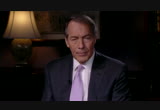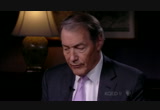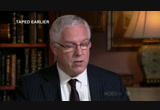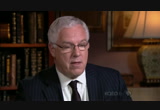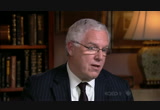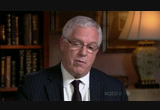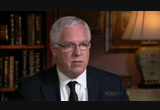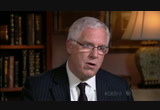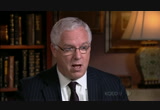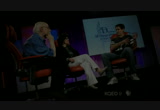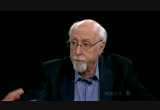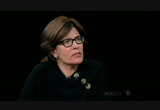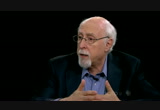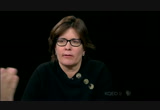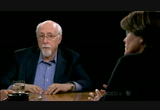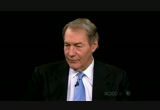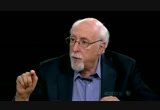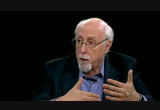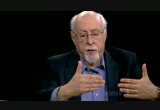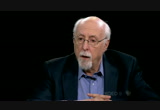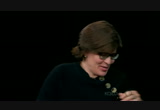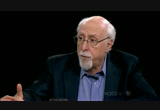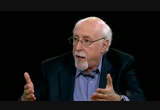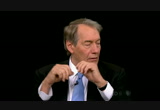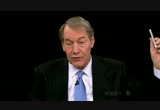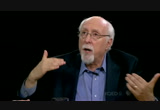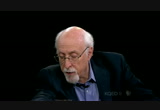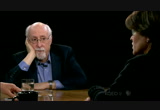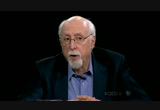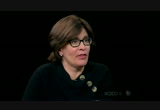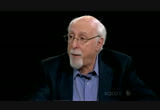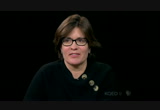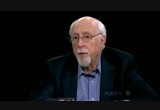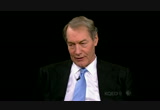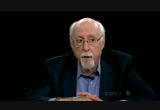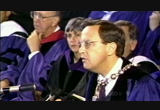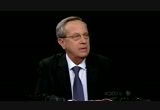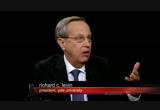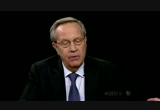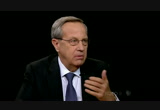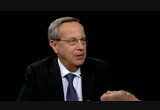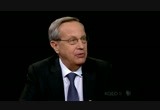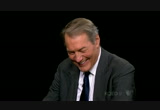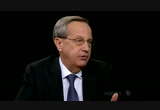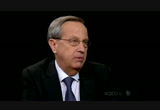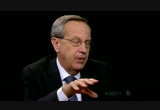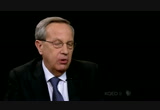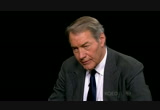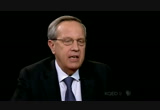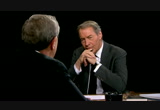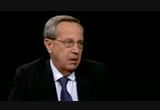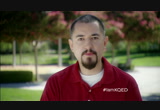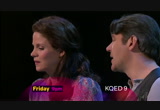tv Charlie Rose PBS April 22, 2013 12:00pm-1:00pm PDT
12:00 pm
12:01 pm
captioning sponsored by rose communications from our studios in new york city, this is charlie rose. >> as we prepare broadcast for air, an on going story is developing. watertown authorities have captured bombing standoff number two. to want in a segment taped earlier this evening john mill over cbs news explain house we got here. >> rose: once again with john miller of cbs news, he has been covering this story all day. there is a massive manhunt under way in massachusetts for suspect number two, suspect number one has been killed. we are taping this conversation at 6:10 eastern time so my question is where are we? >> they have a massive perimeter 20 blocks in either direction. they are nearly complete with that perimeter and so far at this stage they have not found man they're looking for which is
12:02 pm
obviously very frustrating and potentially dangerous. >> rose: how will they measure he's unlikely here and we need to expand this manhunt? >> i think they do two things. one, before they let that perimeter go they reassess. is there some place we need to go back and cover within this box? is there some place we did very quickly that we might want to do again with -- you know, more slowly. is there anything going on with tracking dogs or so on that gives us any indication there's a trail that we can still follow but after they that they go to the command post and say now we have to widen the perimeter to anywhere he could be and that means going back to where we were yesterday. here's his picture, this is who he is, this is what he's done. we need the public's help. >> rose: let's retrace the events starting with the fact that all things were unfolding in watertown this morning. what happened? i want to go from what happened to the fact that he has so far eluded capture.
12:03 pm
>> what happened was a series of frightening, dramatic events. it begins with some kind of incident at a gas station that has a convenience store attached to it. some kind of robbery. a description goes out of a car. at this point these two individuals-- suspect one and two, the brothers-- are in the brothers car driving when they see the m.i.t. police officer. it appears on assumption that they think the officer might have had the description from their car they engage him and he is ambushed, shot in the head. he never even had a chance to get out of the car. from there they take off and they find a motorist believing hair car is too hot to keep. they carjack this man, going out of the city of boston into the area of watertown when this turns into a police chase. they let him go unharmed, the
12:04 pm
police spot the car which is now reported as stolen and the chase is on: that ends at an intersection in watertown where they engage in a fire fight with police and they are throwing improvised hand grenades that they have, homemade explosives. and then at some point during this fire fight the older brother, tamerlan, throws a giant device, a bag, a satchel which apparently we are told contains another one of these pressure cooker bombs just like in the boston marathon and that explodes. but it doesn't explode in the way it's intended. the top comes off when he throws it so the explosive doesn't have the pressure built up that it would be if it was airtight and that's probably the only reason that more police officers weren't killed or maimed or injured there. but he dies in a a hail of bullets and that explosion. in the confusion-- and this may have been part of the plan, i'll
12:05 pm
rush the police, throw the bomb, you get away-- his brother jumps back in the carjacked vehicle and speeds off, actually backing over his older brother's body in the getaway. goes about five blocks, jumps out of the car. they have set up a perimeter in that area already and they start to tighten up that perimeter thinking if we've got him boxed in we'll search house to house. but many hours later they still haven't found him. >> rose: the man whose car was -- vehicle was hijacked and then released, what does he say? >> he says that they jumped in the car, that they kept him hostage, that they threatened to kill him and at some point they stopped the car and threw him out and kept going. >> rose: did they tell him why they were throwing him out and not killing him? >> at this point i don't have the details of the conversation beyond those snippets that he was threatened and then they dumped him. >> rose: we assume he's on foot or has anybody reported missing a vehicle that he might have
12:06 pm
somehow hijacked or been able to getting access to? >> they've gone through that process of identifying vehicles. he might know where they were or have access to and so far they've accounted for those vehicles but in the time between that they put out multistate alarms for those vehicles only to cancel them a couple days later when they found them. >> rose: so now they know one brother is dead, the other is on the lam and they know where they were living. >> that's right. >> rose: what did they find? >> they did a tactical entry with the swat team and did not find either of the brothers there. what they did find was very alarming. they found more explosive material, a series of pipe bombs capped at either end with fuses. so at that point they sent for the bomb squad, the bomb squad looked at it and they have been talking about their options, whether to blow it up in place, whether to take it outside and try and disrupt each of the devices safely or whether to try to transport them. >> rose: we know several things about them now.
12:07 pm
they came to the country not yesterday but two or three or four or five years ago. secondly, that they were living there. do we know more that might have defined why they did this? >> we see a series of contradictions. you have a russian social media page maintained by the older brother where they list their hopes and dreams. in his interest he says "career and money" as goals for his life in america. the only within the last couple of months are we starting to see material being loaded on that site that has a more serious bent, a more religious bent. and even at that nothing that would set off big alarm bells for extremism from the look we took. >> rose: this is the older brother? >> the older brother. the younger brother, everybody that we interviewed said he was a nice kid in high school and fairly popular and socialized
12:08 pm
and that his college friends where he maintained a dorm room not far from where all this unfolded also said he was well liked, not terribly shy and everybody is shocked to hear that he would be allegedly involved in the bombing of the boston marathon let alone a running gun battle with police. >> rose: any reports of conversations that either of them may have had in the last, say, 48 hours? >> yes. and somewhat telling. the older brother called an uncle that he hadn't spoken to in a year just out of the blue yesterday. and, remember, charlie, at 5:00 these guys knew that their pictures were out everywhere. it was a matter of time before they were identified he said "i just wanted to get back in touch with you, find out how you were, tell you that i miss you." at the end of the call they prayed together. if you put that in front of an f.b.i. profiler or experienced hostage negotiator they would tell you that's a clear
12:09 pm
indicator of what they call suicide ritual. making peace with friends that you are out of touch with. settling affairs because you don't expect to be around long and you don't want to leave things unsaid. >> rose: do they assume that if the younger brother had been able to avoid capture-- and they don't know where he is-- that he's pretty good that the? >> i think you're looking at two people who demonstrated in the last 24 hours or starting at the boston marathon on monday a determination, a certain level of daring meaning that they're not terribly concerned if they're caught or killed i think if you look at the tamerlan, the older brother, charging a heavily armed group of police in a fire fight he was not afraid to die and that that may have been actually part of his plan in that moment so i think you're dealing with someone who's very dangerous. if you look at what happened with the canceling of the red
12:10 pm
sox game, the canceling of the bruins game, the canceling of other events you're saying we have a guy on the loose unaccounted for someone in the confines of the city who may have additional explosives with him who has demonstrated an ability, even desire, to kill people and to do so in events that draw large crowds. so boston is still a city on edge. >> rose: thank you, john, we'll be right back. stay with us, my thanks to john miller. the spread of mobile technology is a vital part of the tech revolution. it also raise miss questions about how the world will change as people become increasingly connected. this week, experts explored those questions at all the t all things digital conference that was held here in new york. joining me with the of the people who led the discussion, walt mossberg is principal technology columnist in for the "wall street journal" and kara swisher, also a "wall street journal" technology columnist in. i am pleased to have them here at this table because this is
12:11 pm
the first time they have ever appeared together at the same place. right? sflp >> well, with you. >> rose: oh, you've done interviews together. >> we've never been on a good show. (laughter) >> rose: i'll take it. okay, give me the headlines coming out of all things -- >> the headline is that everything is moving to mobile. if you ask companies like any social network, e-commerce companies, many of them appeared at the conference, small ones, big ones, the percentage of people doing their reading, transactions, checking with their friends on mobile versus p.c.s or macs is just soaring and i think that's the fundamental underlying headline of everything. >> rose: wasn't this conference dedicated to that idea? >> it was dedicated to mobile but that's why we did it because it's moving to mobile >> the biggest two things that happen today, mobile and the
12:12 pm
cloud. >> they go together. but what's important is that consumers are using them and everyone has to follow and if you don't have a cogent mobile strategy that makes money you're in trouble. so facebook ran into a lot of trouble because people felt they didn't have a mobile strategy. then you saw this incredibly aggressive last week to unveil home which is their new mobile phone which i happen to have right here. so everybody has to have a mobile answer and even if they don't they've got to keep saying mobile a lot of times. we're mobile first, mobile native, doing everything around mobile. mobile teens are integrated with our other teams because the desktop is essentially over in that regard. >> okay. meaning what? people that have desktops but use them? >> no, they don't use them. you're sitting there with an ipad. that's a mobile device. >> ipad and iphone. >> rose: how many times do you sit down at your desk. >> well i'm always writing and stuff. >> but it's less than it was. >> rose: of course. >> i was at this table with you the day the ipad came out and we
12:13 pm
talked about how if the tablet could replace the laptop in enough scenarios, not that it would have to replace it totally then it would take over and we're actually seeing it before our eyes. it's not that the laptop is going to be dead but if you use it less you are inclined to spend less money to replace it. >> rose: and most of new technology is poured into what's new and happening, which is pervasive. >> poured into mobile and steve jobs at one of our conferences in california the last -- >> rose: he spoke -- >> before he passed away he said it's like cars and trucks. there was a lot of emphasis in the early days of the auto industry according to him on trucks for agriculture less emphasis on cars for just people who travel and then it flips around and he said the p.c. is the truck. it's always going to be there. it's not going to go away but fewer and fewer people are going to rely on it fewer and fewer times during their week compared
12:14 pm
to the mobile devices. >> rose: because they can do everything on mobile. >> not everything but 80%. >> rose: what can't they do? >> it's the internet of things. these things react with you in a physical world. you're someone somewhere and use a map. when's the last time you pulled out a map or didn't use a phone for -- used a map. these are becoming health care devices. you pit it in you're and it shows you a picture inside of you're. >> it was an iphone, attachment to the iphone. >> heart monitors. you here in a store, google is taking pictures of insides of stores so it becomes your remote control for everything in your life and interacting with the physical. >> this is because of the app explosion. >> not just the app because facebook is trying to end the app explosion by this phone but the ideaed that the mobile device can lead you everywhere and give you all kind of hints. >> but kara's right about what facebook kind of semi-ny sneaky strategy is there but it is the app explosion. there's a theological argument
12:15 pm
among technology, people about apps versus web browsers. i don't think consumers care at all. if there's a good game or productivity tool and it happens to be an app, that's what they're doing. right now there's 800,000 apps in the apple store, 700,000 in the google store. it's enormous. >> rose: speaking ofing into this will idea sometimes advances. the app explosion means the people are going use apps for search and not google. >> well, certain search. is we have a map willing service and google has a very popular mapping service. waves has started to -- >> rose: as apple found out. >> well, waves is the one they probably should have bought but there's all kinds of alternatives so google, that's why they had to get in the phone business, they wanted to keep the search business, which is paying for everything, their crazy cars and glasses and everything else so they have to keep search -- they have to be on the phone being the search choice.
12:16 pm
is >> even apple, their enemy, they pay apple-- i don't know what the terms are-- but there's some money that changes hands for google to be the default search on the iphone there are other choices. but on android there's a big google search field right there. this facebook phone, one of the things that i'm sure -- let me just say officially eric schmidt of google came to our conference and said he's fine with the facebook phone. >> loved it. >> but inside google -- >> rose: was he just saying that or does he really believe they? >> well, it's a little of both. facebook followed their rules but if you get immersed in facebook because it comes right on the minute you turn the phone on. >> rose: explain to me right now what this phone does. >> this phone -- there is -- no apps jump up when you open it. it is facebook, new your facebook account. so your news feed is scrolling through as you're using it and you can immediately comment or like it or poke someone or do
12:17 pm
something. a lot of the apps are facebooked apps like instagram which facebook bought. so your proclivity is to use facebook apps. now the google apps are in there and of course the facebook people say well, it's just a few swipes away but nobody does a few swipes away. it feels like a little bit ofs do under windows kind of thing. you don't use google services as much when you're in the facebook universe. >> you're not going to use twitter. not that you're never going to use it but mark zuckerberg that had a facebook talked about. this you have ten minutes in the grocery store or in the starbucks and on an android phone or iphone you would check several things. on this thing, the minute you turn it on before you unlock the phone you're in your facebook feed it's the same number of swipes to get to that list of apps and you can customize it and all of that but like kara says youshgsz ear unlikely to
12:18 pm
get there because you're immersed in what all your facebook friends have had to say, what the latest pictures are they've posted and you're going to be gone with your coffee in your hand before you've ever thought oh, i forgot to check twitter. i forget to check gmail. the >> you use their messenger because their messenger is right there. they can put a dialer in here, which they're going to do. so you use their phone book to call your friends using their dialer. they could put search in here very quickly. they could put bing and here's your search. so it's an interesting issue of how far they're going to go. >> rose: >> and it's legal under an druid. google is seeing it's a two-edged sword to be open source. apple does not allow. they have some integration of facebook and they claim to have a good relationship but they would never allow a third party company to take over the front of the phone. >> rose: (laughs) >> we asked that.
12:19 pm
we asked the facebook people if they asked and they said "well, we hope to." and we're like "are they going to let you?" and they said "we hope to." and i said "they're not going to let you." >> so the official position of google is that this is all fine. we're open source. unofficial position inside i suspect is not as -- >> and mark will respond to that? >> people who love facebook will love this phone. >> can you tell me how all this is changing our lives? how are we different because of all this? >> i think shorter attention span. i think also more reliance on -- the technology is more personal. and it goes for tablet as well as the phones. you know yourself because you use these things that it's a different feeling than sitting somewhere and having that keyboard between you kara mentioned some of the kind of joining of the digital world and the physical world that happens on the cell phone.
12:20 pm
it's full of sensors. it can have health sensors on it. it's a personal, personal thing and i know p.c. stands for personal computer but it's not nearly as personal >> and then the glasses, some wearable stuff starts getting interesting. >> rose: you're going to test soon the new galaxy. >> the samsung galaxy s-4. >> rose: what impact do you think that will have? >> samsung has come a tremendous way. both in the quality of their phones and in the brand recognition that they have in the u.s. and elsewhere around the world. they're the biggest competitor to apple right now in the phone business. and if this phone catches on -- >> rose: i know that. i mean the biggest competitor to sony in the t.v. business. >> well, they've driven out -- >> rose: they're pervasive across everywhere. >> no one in the android world comes close to them anymore so whereas google's original idea
12:21 pm
was there would be hundreds of phone makers and there are technically if you count them up who's using android it's hundreds of companies only one has any serious market share, serious profits it's sam suck. by the way, poses an interesting problem for google about who controls android now. is it google or samsung? so this phone builds on the success of its predecessor, it just gives samsung more power over the whole android ecosystem. >> what should be interesting is who has the power over that, google or samsung. and that creates an interesting situation. apple has control of the entire ecosystem all the time. so it's a tradeoff that google has been making in hopes of preserving other business. >> rose: so microsoft is coming out with a smart phone. >> no, they have one. >> rose: i mean their own that they make. i thought i read that. am i wrong? kara, help me out here. >> they had a smart phone and they're coming one that they make themselves. >> rose: we believe -- kara and i believe they will but --
12:22 pm
>> rose: nobody said anything about it at the conference? this is not mentiond? >> we had a microsoft phone there and he mostly insulted android. >> we had a whole session of w the head of windows phone. he -- and then, you know, i talked to him for a while on the side. he is a smart guy, they have a good operating system. they have had almost no takeup in market share in the developed countries. one of the things that he said was that in some countries, poor countries where they don't subsidize the price of the phone because, you know, a galaxy s-4 or an iphone, if you had to pay the full cost it would be $600. >> rose: right. >> rose: >> in some of these countries in the third world they're selling windows phones for 50 bucks or something and there they have 13 14, 15% share instead of one two percent share. that's one of the things. >> rose: he was saying we're
12:23 pm
doing great in mexico, poland and finland, if you can believe it. so it's kind of odd, like, oh, great, you're not winning in the u.s. they have a difficult time. not because the phone isn't a good phone. it is a good phone. it's because they were late to the game and they're certainly not making innovative strides that jump over anybody. >> well, they don't have enough apps. here's what goes on. you go to an app developer, even if you're willing to pay them-- and microsoft is willing to pay them--. >> rose: and they've got the money. >> blacker be i have willing to pay them. you go to them and you say make an app for our platform and the app developer might have five people, might even be a big company but the department that writes the app has five or ten people. they say we have our hands full doing apple-- which is called ios, that's the name of their operating system-- and doing android. we don't -- where's your share? it's a chicken and egg game? they said well, we'd have more share if we have more apps and they say come back when you have more share. so it's a tricky problem. >> rose: and the price of the phones are depressed in the united states. they bring them down to the $200
12:24 pm
level and microsoft can compete in markets where the phones are $600 and $700 where the carrier doesn't subsidize it. in this country a $200 price point for that, this, and the windows phone, these tend to win >> rose: jeff bezos at amazon, is he developing a phone. >> supposedly. many people have reported that. >> rose: i asked him, he refused to say. >> well, of course. i can't imagine he wouldn't because it's part of the whole sort of kindle strategy. they've already made the two tablets and others. many tablets. >> rose: kindle kl do one more thing. >> it will be interesting to see if more people will do what facebook did and create layers on top of android. could yahoo! do this? could ebay do this? >> amazon has already done it and they've done in the a more radical way on the tablet there's no google maps, no google search even under several layers, it's all amazon.
12:25 pm
it's an android tablet. so as far as i can tell google makes nothing when jeff bezos sells a kindle fire. >> rose: jeff bezos' theory-- as you know better than i do-- is he's creating these things so he can sell content. >> that's his goal but what you're ebay and you could create a software layer on top of android? i was talking to troy carter who managing lady gaga. he has a thing called back plane which is the fans of lady gaga. what you were you were a crazy lay da gaga fan. you could create a layer on top of android and if you were immersed in that community you might want -- it's an easy way to create a community. >> rose: but here's what's always been interesting to me is the underdeveloped world and the emerging world. this transforms their possibility. they don't need frublg which you are, they don't need any of that stuff anymore. >> they brought in people specifically called global
12:26 pm
voices, they had a woman from uganda talking about things they were doing there. all kinds of people talking how they really use the phone. in this country we're so elite and lucky and we play games on these things. these things transform -- if you're a subsistence farmer in india you can find the right prices. if you get the right weather or health information. >> banking. snipe microfinancing. >> there's no bank branches in most of these places in these poor countries, they do it on the phone. >> and you can find temperature, prices. you can find out everything else. >> to be fair, let's be fair for a minute, i was talking about google's problems, one of apple's problems is it may need to figure out a way to make an iphone chep enough to sell into somebody's lower income economies. they're never going to be the lowest price people, that's not in their d.n.a. but they may have to do something a little bit less expensive. >> rose: back to the point that i think technology is so interesting today. one as i just said is
12:27 pm
underdeveloped countries and it gives them the opportunity to leap ahead and do things. two is education. >> absolutely. >> rose: it's what the possibilities are. how you can educate. where you can get degrees and you can sit in india and take courses at harvard. >> right. >> yes. >> there's a lock going on. the university that larry summers is involved in. it was a whole university. >> and three which you just mentioned is health care. the possibilities of being able to understand and diagnose and getting access to information. >> there's diabetes apps, heart apps. >> three there's a thing you can put on there which is a glucose meter like kara was saying which of course, die s diabetics have to measure their glucose now instead of being having a glucose meter. it's not just a computer, it can
12:28 pm
transmit it to your doctor, it can give you a graft showing how you're doing. it can send you tips and say look, we've noticed that the last four readings haven't been so good, we suggest you do this. >> let me ask you this: how did you two come together? >> (laughs) >> it's a long story. i was working at the "washington post" -- >> rose: the it interesting? >> i always say it's the best relationship i've had with a man with n my whole life. the best marriage i'ved what a man. besides with my cell phones. we -- i was at the "washington post" writing a book on a.o.l. and walt -- he was the only person sensible to me about a.o.l. and i thought a.o.l. was going to change everything because consumers were coming to -- teaching consumers to like the internet no one believed in a.o.l. and walt was the only person who said "this company is going to change the face of modern computers.
12:29 pm
so i called him up and wanted to interview him for my book and we got along. >> rose: >> and then she said "i don't know what i'm going do when i get that you have book leave." because she was working at the "washington post." fantastically great newspaper. we both love it but not at the time the strongest newspaper in technology coverage. >> a.o.l. was there in >> so i said to her you should come to the "wall street journal" and i called the editor of the "wall street journal" -- >> interviewed her and said good idea. >> and nobody was covering the internet and when i got hired one of the media reporters said to me "you'll be covering c.d. radio." like it's a fad. and i thought it's not a fad. it's going to be big. the kids seem to love it. >> a few years later we would go to the same tech conferences, we thought we could do a tech conference better. so we sold it to them and we've done pretty well. we sold the yld to the "wall
12:30 pm
street journal". >> we really wanted to do the blog but they didn't know what the word meant at the time so that was hard. >> did you alternate writing the sfwlog >> i run the news part and walt contributes his reviews and stuff like that. >> how about this? jeff bezos, larry page, cook, i think probably, and -- who am i missing? >> we've had them all. >> everybody you just mentioned -- >> rose: i want them there together. >> you want them on one panel? >> we had a computeer -- >> rose: i want them going at each other. >> we did a computer bowl which was history of computer history and we put eric schmidt on the stage with bill gates right when they were going at it and they were teammates which was very funny. >> and you sat at a conference next to bill after steve was speaking, i will never forget it. >> they had a bit of an incident
12:31 pm
around that. >> the year that we negotiateed the joint appearance which took less negotiating than i thought steve also spoke -- steve jobs spoke separately and during the interview i said to him how does it feel to have a really popular program on windows computers, which was itunes, very popular and he said to me -- >> rose: still is. >> he said "it's like giving a glass of ice water to a person in hell." (laughter) now this was five hours before he was supposed to go on with bill gates. bill gates arrives at the conference. he happened not to be there at that moment. he arrives, his people brief him that jobs said this. they walk -- he walks into the green room, the place where you hang out before you go on stage and he is not a happy guy. he's speaking in single syllables, jobs walks in a few minutes later. each have their p.r. person. both p.r. people are very nervous and gates says --
12:32 pm
>> well, first of all, jobs walked in with a grin on his face like "i got him." >> he did. >> wasn't that god. you realize these people are real people but he had his, like i got him again. >> and he was late. it might have been deliberate, maybe it wasn't. and gates said "i guess i'm the representative of snell" is that right? >> no, no, what happened was he was talking monoslabally and we were trying to explain we wanted it to be high level and not to knock each other we wanted a big historic interview and every time we said something jobs just grinned and gates would say "hmm u00." and we're looking at each other like oh, no, that's bad. so something happened and gates said. >> i guess -- he goes well what do i know i live in hell? and jobs -- >> this is all jobs did. as he walked in the room and i don't think anybody noticed it, you know there was like a bucket of ice with bottles of water, he took a baht bottle of water, he was holding it, as soon as gates
12:33 pm
made that remark about hell steve jobs handed him a bottle of ice water. >> covered with con seine decontamination. he goes "let me help you." sglnd >> and it broke the tension. and it was a high level interview. >> but he did get him. he liked to get gates all the time and at one point i said "what's the thing about your relationship people don't know?" and jobs thought for a second and he goes "bill and i were married several years ago." and gates was not expecting this and he was like -- (laughter) >> rose: here's my last question for both of you. a hundred years from now who is going to remember? bill gates or steve jobs? >> oh, both. both. >> both but for somewhat different reasons. with bill gates you'll remember him as a great philanthropist now in addition to everything else he's done but bill gates was utterly instrumental. let's put it this way, steve jobs commercialized and popularized -- he didn't invent it, but he popularize it had
12:34 pm
personal computer then he reinvented the way you use the personalal computer with the mac. but bill gates -- without bill gates and jobs himself said this at the joint interview that bill gates wouldn't have had the p.c. software industry >> he's the henry ford of it. >> he made it more popular. >> it's like henry ford, thomas edison. >> rose: along with andy grove. >> jeff bezos, larry page and sergei bryn, steve jobs, even larry ellisson, henry ford, thomas edison -- >> rose: i know, but the reason i asked the question is someone smart, i can't remember who, this is the reason i ask, said to me, look, a hundred years from now they're going to remember bill gates more than they remember steve jobs, i promise you because of what he's doing in terms of -- >> oh, well that could be. >> the idea of how mammoth his philanthropy is and how he has
12:35 pm
gone at it with the intensety he has and absorbed by it he's putting his stamp on the planet in a way that no individual -- >> like andrew carnegie at the time. but do we ever forget henry ford and thomas edison? we just don't. the jobs narrative -- >> if you're writing about technology, what we have now wouldn't have had v happened without both of them >> right. >> and it was really terrific to have them together and it was actually 30 years after the first mass market p.c.s have come out to the year and they both were involved in that 30 years before. so it really was an amazing moment. the >> and steve jobs' narrative is so fantastic you couldn't make it up. >> rose: thank you, so great to see you here together at this table. any time. come back.
12:36 pm
>> back in a moment, stay with us. >> rose: rick levin has been the president of yale university for nearly 20 years. is he took office at a time of great reckoning for america's third-oldest university. yale was in debt, its buildings were in decay and relations with its home city new haven were at an awl time low. many worried it had slipped from its mantle. levin went on to launch one of the most transformational periods in yale's history. he's expanded its international reach, improved academic programs and restored yale's standing in the ivy league and beyond. he will step down on june 30. here's a look at his 1993 inaugural address which we will soon test. here it is. >> at that time of looking forward we reaffirm the values of our past to preserve and advance knowledge. to defend free inquiry and free
12:37 pm
expression. to educate leaders and thinking citizens, to teach the world around us to give scope for human achievement and to nurture human potential. we reaffirm these commitments not meerly as ends in themselves but as a means to improve the human condition and to elevate the human spirit. let us resume our timeless labor. let us leave shining furrows behind. >> rose: i am pleased to have rick levin at this table. welcome >> good to be here. >> rose: this is not our first conversation. i've made many visits to your university. how will you feel on june 30? >> well, it will be a big change
12:38 pm
absolutely. i've loved this job but i did think 20 years was a long time, a nice round number. i got to thinking last summer they're going to give me a 20th anniversary celebration in the spring and the only question people are going to ask is "when is he going to leave?" so i figured it's probably the right time. >> rose: winston churchill famously said "history will be good to me because i will write that history." >> he did! >> rose: and all these books are written by you. >> that was about me. >> that was about you. okay your book is a collection of speeches. why the? why a collection of speeches because you believe in speeches as a way to understand a man's mind. >> it's an important part of a university president so there's all the freshman addresses, the welcome freshmen, senior sendoff. i've had -- because of yale's global efforts, i've had many opportunities to give important public lectures around the world
12:39 pm
at different times and so for f there are a couple things about the economy that as an economist things are of interest to me. >> rose: there is this, though. you've been there 20 years. the first person to see you had presidential possibilities i'm told was bart giamatti. >> so it's told. (laughs) he didn't tell me at the time. >> rose: behe told me he thought you shouldn't stay in a job as executive more than eight to ten years because pretty soon you'll start simply hashing what you had already done. you stayed 20 years. >> well, i got different advice. i actually got wonderful advice from hen i have shaft who had been the c.e.o. for 23 years. and wonderful man. and one of my trustees when i started at yale. i asked him how did he last 23 years at one company and he said you have to -- every five to seven years you have to complete
12:40 pm
rethink your agenda. if you don't have new ideas, if you don't have a new set of objectives it's time go. >> and it is in a fact incumbent on you to say how do you reseed, how do you rethink only analyze what you've been and where -- what you're doing. why did you at stanford study economics? >> i actually studied history as an undergraduate. >> rose: oh, you did? >> and got to oxford and did political theory and philosophy and only then came to yale and did economics for my ph.d.. >> rose: all right, so i rephrase my question. explain that evolution. >> well, history was the subject that interested me at the time asen undergranl watt. i took a couple of economics courses and liked it very much. >> rose: what did you like about it? >> i liked the rigor, the logic, the way that the theoretical framework fit together and that it was actually a theoretical
12:41 pm
framework that was talking about something real. and i want to ox forth to start to become a historian and decided i was -- i didn't like to say i was allergic to the dust of the library but what i really meant was i was not that comfortable in what looked like a career that was going to be very isolating. i have great respect for historians, it's my recreational reading that's mostly history but you know historians have spent a lot of time in archives all by themselves researching things. economics which i liked also seemed much more collaborative and much more relevant to -- >> then why did you shift into an administrative role? >> well, that was much later i think i had an aptitude for organizing people and working with people. >> rose: you knew you had that skill or did you uncover it? >> well, i went to an entrepreneurial high school organization founders and class president and things like that
12:42 pm
so i had that. i knew that i had some of that skill and the economics department when they made me an assistant professor in the first year immediately put me charge of organizing the full freshman economic sequence supervising 19 other instructors so i sort of -- that was always part of the picture. >> rose: and after that yale went looking for a new president yes? >> that's right. >> rose: they interviewed you early. how long did this process take? >> (laughs) it was a ridiculously long time. it started in june of '92 and ended up with a result in april coming up next week, april 15. 1993. >> how many interviews? i heard 20? >> i had 24 interviews, all one on one or one on two. >> rose: different people, i assume? >> with members of the search committee and the board so that was a total of 16 board members and four faculty members who served on the eight person search committee so there were 20 people --
12:43 pm
>> how did you approach? >> just conversations. >> rose: did you say i want them to know this about me because i want this job? >> well, they were just -- people were sort of picking my brains about what i thought about yale, about its current condition, then current condition, about its future, about what the principle aboutive should be. yale was in trouble at that time i mean, we had had some very negative national press, we had a murder on our campus in 1991. system? we had -- >> rose: students at lacrosse practice? >> that's right. we had an article in the "new yorker" about drug gangs in new haven. it could have been written about any city in the united states but it was written in new say are hey venn. >> rose: geneva convention had an article called the geneva convention had an article called the death of yale. >> don't i know. and we needed to reinvest in creating the city of gnaw haven.
12:44 pm
it's been a massive transformation. >> rose: did you find out how a university can expand and find the right relationship with durham and duke? >> you know, we -- >> rose: cambridge and harvard? >> we are such a big fraction of the local economy now. it wasn't true for many years. employment and expenditure, retail expenditure and so forth. so there was -- there was a time when you had this manufacturing city and this second tear financial center right up to even a little bit post-world war ii. it's still make mug in addition there is for the vietnam war. but after the the winchester plant closed the place had virtually very little in the way of other major employers and we were not stepping up to our responsibility as corporate citizens. and we have now. we've done a tremendous amount of work to build a relationship. i was fortunate that the mayor of new haven who was elected the same year i became president has
12:45 pm
served the same length of time and he's just announced he's stepping down. >> rose: didn't you go to sigh him early on and have your picture taken with him? >> we did more that that. we sat down and talked about how yale could help and what could we do. he had some ideas, some of them came to fruition. we've had our bumps in the road but basically it's been a huge mutually beneficial partnership. >> look back over 20 years and tell me what you're most proud of. >> boy, there's so many. if one is what i just described. go to downtown new haven today it's a thriving terrific retail, great restaurants, it's safe, well lit, clean. it's a very please sant urban center and that's now an attractor for students instead of a detractor. i think another area where i take great pleasure is rebuilt the cam bus. the campus was in terrible physical condition and we put in the beautiful shape.
12:46 pm
yale has the greatest architecture i believe within any campus in america, and we've restored dozens and dozens of those. >> rose: good school of architecture. >> and built new ones. and the third we've talked about. four is the internationalization building yale out as a real global presence. >> what's the purpose of that have? what's the motivation? >> motivation i laid out in that inaugural address which is that we're in -- and this was 1993 we weren't all using the internet like we were today. i saw the world becoming more tightly interconnected and interdependent and felt that the students who graduate today need the capacity to work across cultural boundaries with people in other nations. in almost any career. so the capacity for cross cultural understanding is a kind of way of learning and i thought it needed to be embedded in what yale was doing so we brought more foreign students to campus,
12:47 pm
we only had 2% international undergraduates when i started. now we have ten. so students start learning about other cultures from their roommates and now we have a -- we went from having a couple hundred students a year go overseas on yale-sponsored programs to having 1,400 which is larger than the size of one class. >> rose: you have a presence in singh pore, a presence in lots of programs in china. >> we have a lot of kids go to europe for language study or to take courses. we now have about 20 odd yale courses taught overseas in the summer. yale faculty members take students on field trips. we have a lot of work internships around the world for our students. clustering students in major cities with cultural programming around their jobs. so that's been very successful. >> rose: how did you do it? if you ask yourself now as somebody coming the leader of an
12:48 pm
institution, what do i need to know? >> well, you have to asenlable a great team. these are big projects, you can't -- i had great leadership of our new haven initiatives. i've had great leadership of international initiatives, same person started both linda or will her did a fantastic job with paving the way in new haven until such time as we realize the next phase is real estate development, we need a real estate developer to redevelop renail new haven and i brought in bruce allawi sander. great guy who had all kinds of experience with the company doing major urban projects and he's done extraordinary jobs for us. and then took over the international one we started to ramp it up. >> rose: and you've had some good people who part of your team had gone on -- >> then one great pro vest after another who handled the academic side and a fabulous job.
12:49 pm
sffrpl dick went toe your alma mater and now peter salvi is my successor. >> is there a sense of what the best training is to be a president of a university? peter is a psychologist, isn't he? >> he was english and also son richard was anthropology i don't think the field is what matters. it's the combination of really good human qualities. i mean, you know, you really -- these are complicated environments and you have to have a feeling for people and the built to deal with people and be trusted. i think at a place like -- you have to be a superb scholar and teacher and well respected. because -- people have to respect you if they come from an academic -- >> you leading the most talented intellectuals in the world. and they want somebody they can respect as a conversation partner. and i think it's out of th)iá large faculty a couple of
12:50 pm
thousand people there better be a few who can lead. and my job is to find them. one of my jobs is to pick the talent, give them committee assignments and administrative jobs that would bring out the talent. >> do you have any idea what bart giamatti saw in you? >> i don't know, i was well organized. >> his provost, bilbray national guard, was a mentor of mine and i think bill sort of called me to his attention and it was to bill that i got to know him and got very important assignments even in the university so in may you'll preside over the graduation for the last time. what do you hope these kids leave yale after four years? i think they leave with a deep appreciation of learning.
12:51 pm
yale opens them to new vistas and to go deeper into >> i would hope that it's more. i've been doing it now, i've been in the graduate education program for the last 25 years after i left school. i would hope what comes away is something that stimulates everybody's curiosity so they want so they have a basis of knowledge that gives them a platform to go out and learn everything they can and understand how they can function in the most satisfying way in the learn they live in today. >> i agree with that and that's what most of our great universities are able to accomplish in their graduates to give them a real spark that they -- that they become self-start starters. they have critical thinking
12:52 pm
skills and have the curiosity to keep learning through a lifetime theeer thing that yale is strong on is imbuing students with a sense of mission. with a sense that you had access to this remarkable education. this exposure to these fabulous buildings to this great architecture, unbelievably great fact you will think two are highly committed go. do something that matters. >> rose: that was part one of two-part conversation with rick levin, the retiring president of yale university. part two next week. thank you for joining us. see you next time.
12:57 pm
the following kqed production was produced in high definition. and their buns are something i have yet to find anywhere else. >> i'm not inviting you to my house for dinner. >> breaded and fried and gooey and lovely. >> in the words of arnold schwarzenegger, i'll be back. >> they knew i had to ward off some
12:59 pm
hi, i'm leslie sbrocco, welcome to "check, please! bay area," the show where regular bay area residents review and talk about their favorite restaurants. now, we have three guests and each one recommends one of their favorite spots and the other two check them out to see what they think. it's a special episode this week, as our guests are very familiar with the camera. they are all bay area celebs. first, you may not know her face, but you will recognize her voice. andrea kissack's job is to raise environmental literacy while her zeal is for the love of wine. journalist thuy vu began her career right here at kqed fm, now a local tv co-host with a passion for food in the city, she keeps her finger on the pulse of a dining scene, pulse on the bay. raj mathai hit the ball out of the park, made the
145 Views
IN COLLECTIONS
KQED (PBS) Television Archive
Television Archive  Television Archive News Search Service
Television Archive News Search Service  The Chin Grimes TV News Archive
The Chin Grimes TV News Archive 
Uploaded by TV Archive on

 Live Music Archive
Live Music Archive Librivox Free Audio
Librivox Free Audio Metropolitan Museum
Metropolitan Museum Cleveland Museum of Art
Cleveland Museum of Art Internet Arcade
Internet Arcade Console Living Room
Console Living Room Books to Borrow
Books to Borrow Open Library
Open Library TV News
TV News Understanding 9/11
Understanding 9/11